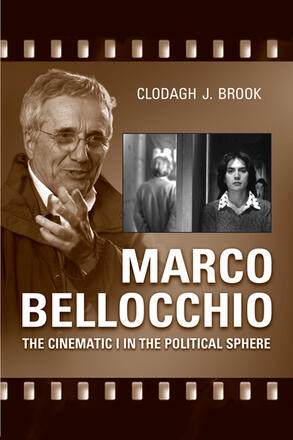
Description
Marco Bellocchio is one of Italy's most important and prolific directors, with a career spanning five decades. In this book, Clodagh J. Brook explores the boundaries between the public and the private, the political and the personal, and the collective and the individual as they appear in Bellocchio's films. Including work on psychoanalysis, politics, film production, autobiography, and the relationship between film tradition and contemporary culture, Marco Bellocchio touches on fundamental issues in film analysis.
Brook's study interrogates what it means to make personal or anti-institutional art in a medium dominated by a late-capitalist industrial model of production. Her readings of Bellocchio's often enigmatic and perplexing work suggest new ways to answer questions about subjectivity, objectivity, and political commentary in modes of filmmaking. Relating the art of a private director to a public medium, Clodagh J. Brook's work is an important contribution to our understanding of film.